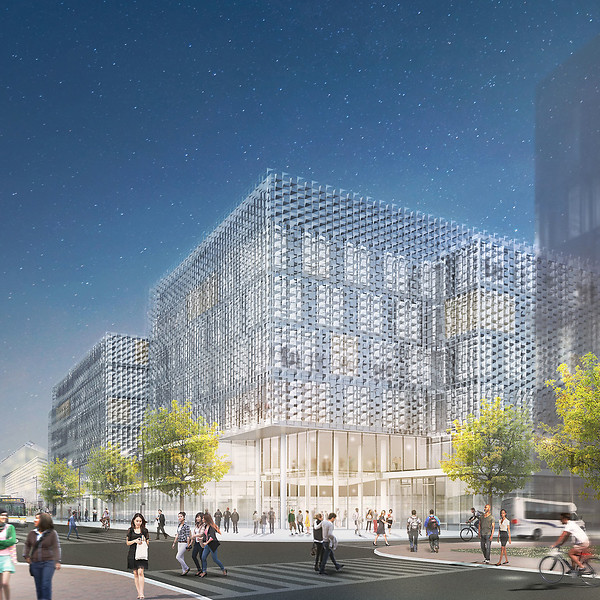Harvard Growing in Allston with New Science and Engineering Complex
The University recently got the green light from the Boston Redevelopment Authority to develop a $1 billion science and engineering campus in Allston, Mass.
By Gail Kalinoski
Boston—Harvard University is moving ahead with the development of a $1 billion Science and Engineering Complex in Allston, Mass., the centerpiece of the university’s ambitious 10-year master plan for numerous construction projects in the neighborhood.
Now that the Boston Redevelopment Authority has approved the 556,850-square-foot complex, construction is expected to start this summer and be completed by 2020. The SEC will be home to about two-thirds of the Harvard John A. Paulson School of Engineering and Applied Sciences and will feature state-of-the-art laboratories along with classrooms and related teaching and research space, according to the university.
The six-story building is being designed by Behnisch Architekten, an architecture firm known for designing sustainable, innovative research properties. It will be used by more than 900 undergraduates, 400 graduate students, 450 researchers and at least 80 faculty members. The university said the SEAS tripled the number of students over the past 10 years.
“The Science and Engineering Complex is a state-of-the-art facility that will enhance partnership across academic disciplines and encourage connections among the University, the community, and new partners in industry and research,” Harvard University President Drew Faust said in a prepared statement. “The growth of our campus in Allston is an extraordinarily exciting opportunity in the Greater Boston region for collaboration, discovery and innovation.”
Francis Doyle III, dean of the SEAS, described approval of the complex as an “exciting milestone for Harvard and SEAS.”
“We look forward to SEAS becoming an important anchor to the region’s newest cluster of innovation and discovery,” Doyle said in a prepared statement.
Scientists and engineers at the school are already engaged in research ranging from wearable robotics to an implantable cancer vaccine to the 3-D printing of tissues and novel bio-inspired materials, the university noted. Several faculty members collaborate with researchers at the Wyss Instititute for Biologically Inspired Engineering at Harvard, which will have lab space at the new complex.
The project was first approved in 2007 as the home of the Stem Cell Institute and halted in 2010 because of the global financial crisis. In November, the university released details and renderings of the new SEC complex and said it was the centerpiece of a 10-year Institutional Master Plan for developments in Allston. The building will also be across from the Harvard Business School and the Harvard Innovation Labs cluster and adjacent to the planned 36-acre enterprise research campus, which the university foresees as a non-institutional center for companies, incubators, startups and social enterprises.
In late March, Harvard hired commercial real estate veteran Steven Fessler as head of enterprise real estate. Fessler most recently led SDF Properties LLC, a real estate investment and advisory firm he founded. He previously held senior leadership roles at Beacon Properties Corp., Copley Real Estate Advisors and Leggat McCall Properties, all in Boston. He reports to Executive Vice President Katie Lapp and will lead the real estate development of the enterprise research campus and work on a $43 million master plan for the North Allston/North Brighton community.
“The enterprise research campus is a bold development: a new innovation district offering a broad mix of uses, including new spaces to live, work, play, research, adapt, innovate and collaborate,” Lapp said in a prepared statement.
“The transformative potential of this new center of innovation is absolutely tremendous,” Fessler said.








You must be logged in to post a comment.